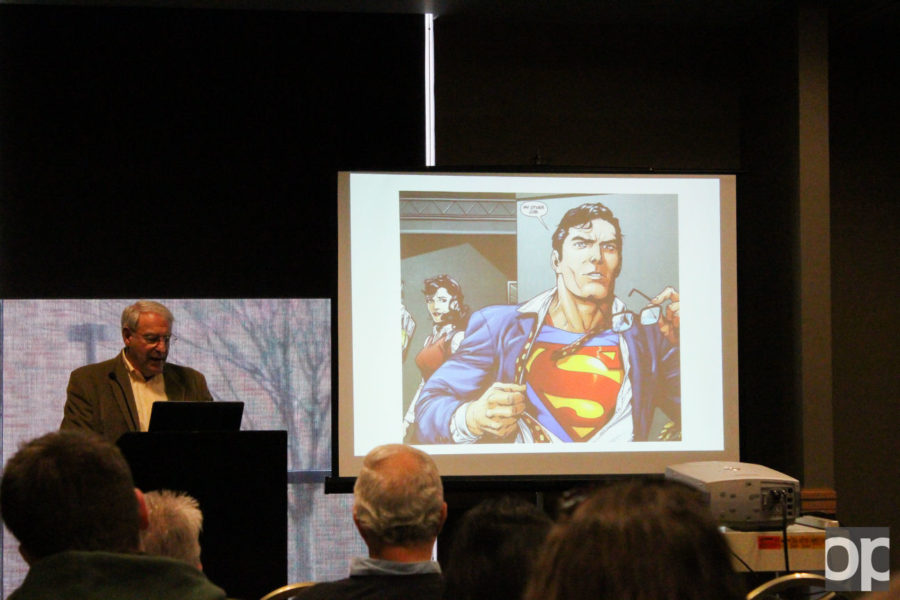CRU holds event on Jewish origins of superheroes
What do Superman, Batman and Spiderman all have in common, other than the tight spandex? They were all created by Jewish people.
The Jewish origins of comic book superheroes was discussed on March 8 at the Religious Studies and Center for Religious Understandings (CRU) event, Superman’s Secret Identity.
It took place from 12 p.m. to 1 p.m. in Gold Room B of the OC.
The featured speaker was Rabbi Joseph Klein, professor of religious studies at Oakland University, and it was open to all OU students, staff, faculty and the public.
Klein said the story began at the end of the 19th century, when Jews fled Europe to America. This included his own grandparents.
Jewish people still faced anti-Semitism in the U.S., and so many talented artists and creators found themselves in the less popular area of literature, the comic book industry.
While they were now free, they still had to convince the American population that they didn’t pose a threat and presented themselves as harmless and passive. However, that wouldn’t get them far in life.
“They knew that in order to succeed, the Jew would have to become a man of action disguised as a man of inaction,” Klein said.
The characters were developed by Jews who saw themselves in their creations. While seeming weak and cowardly on the outside, beneath held something much greater. This is similar to heroes such as Clark Kent.
Just like Jewish creators hid their own religious identities with non-Jewish names, the heroes were concealed by their normal persona.
Klein discussed how many of the stories were rebranded biblical stories the creators heard as children. He gave the example of Superman.
Superman’s parents sent him to earth in a rocket ship, similar to the ark of baby Moses who survived the Pharaoh’s decree to kill all Hebrew boys. Just like Superman, Moses struggled to find his place as an immigrant in a new world and ultimately saved his people.
Klein concluded in saying how proud he was at what these people accomplished.
“Superheroes are such a mainstay in the memories and lives of many people, and for me it’s neat that they all came from Jews, and makes me feel good as a Jew myself,” he said.
Alan Epstein, director of CRU, found the discussion intriguing.
“You can have a comic book story show the yearnings of people who felt oppressed and not welcome in their new land, using it as a way to assert themselves and find their own identity,” Epstein said.
Cassi Sluka, majoring in human resources management, likes how these events get her thinking.
“The more you learn about different groups of people, the better overall understanding you have about the world around you,” Sluka said.
Wendy Ellington, majoring in environmental science, felt similarly.
“I connect ideas in my classes to these outside lectures. It brings in a new way to conceive ideas,” Ellington said.
The next CRU event is titled the Artistic Depictions of Christ Over Time, featuring Dr. Randy Engel. It is on March 22 from 12 p.m. to 1 p.m. in Gold Room A.
Visit the CRU website or Facebook page for more information.






